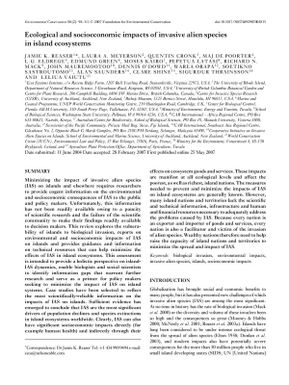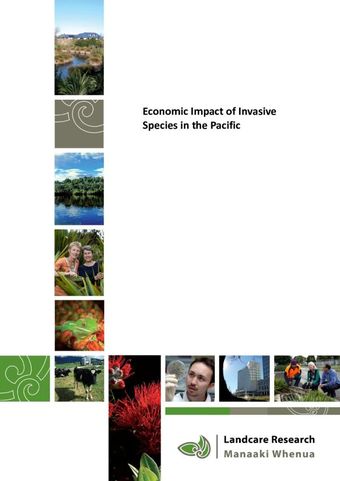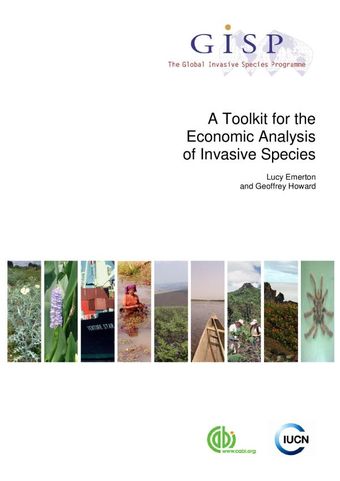Ecological and socioeconomic impacts of invasive alien species in island ecosystems.
- Description:
- Minimizing the impact of invasive alien species (IAS) on islands and elsewhere requires researchers to provide cogent information on the environmental and socioeconomic consequences of IAS to the public and policy makers. Unfortunately, this information has not been readily available owing to a paucity of scientific research and the failure of the scientific community to make their findings readily available to decision makers. This review explores the vulnerability of islands to biological invasion, reports on environmental and socioeconomic impacts of IAS on islands and provides guidance and information on technical resources that can help minimize the effects of IAS in island ecosystems. This assessment is intended to provide a holistic perspective on island-IAS dynamics, enable biologists and social scientists to identify information gaps that warrant further research and serve as a primer for policy makers seeking to minimize the impact of IAS on island systems. Case studies have been selected to reflect the most scientifically-reliable information on the impacts of IAS on islands. Sufficient evidence has emerged to conclude that IAS are the most significant drivers of population declines and species extinctions in island ecosystems worldwide. Clearly, IAS can also have significant socioeconomic impacts directly (for example human health) and indirectly through their effects on ecosystem goods and services. These impacts are manifest at all ecological levels and affect the poorest, as well as richest, island nations. The measures needed to prevent and minimize the impacts of IAS on island ecosystems are generally known. However, many island nations and territories lack the scientific and technical information, infrastructure and human and financial resources necessary to adequately address the problems caused by IAS. Because every nation is an exporter and importer of goods and services, every nation is also a facilitator and victim of the invasion of alien species. Wealthy nations therefore need to help raise the capacity of island nations and territories to minimize the spread and impact of IAS.
- Location:
- Pacific Region
- Collections:
- Secretariat of the Pacific Regional Environment Programme (SPREP)
- Content partner:
- Secretariat of the Pacific Regional Environment Programme (SPREP)
- Availability:
- Not specified
-
Copyright status: All rights reservedFind out more about what you are able to do with this itemThis item is all rights reserved, with means you'll have to get permission from Secretariat of the Pacific Regional Environment Programme (SPREP) before using it. For more information, please see our use and reuse page.What can I do with this item?Non-infringing useNZ copyright law does not prevent every use of a copyright work, and this item may be hosted by an international institute or organisation. You should consider what you can and cannot do with a copyright work.No sharingYou may not copy and/or share this item with others without further permission. This includes posting it on your blog, using it in a presentation, or any other public use.No modifyingYou are not allowed to adapt or remix this item into any other works.No commercial useYou may not use this item commercially.
Related items
Welcome and warm Pasifik greetings
The information on this site has been gathered from our content partners.
The names, terms, and labels that we present on the site may contain images or voices of deceased persons and may also reflect the bias, norms, and perspective of the period of time in which they were created. We accept that these may not be appropriate today.
If you have any concerns or questions about an item, please contact us.


